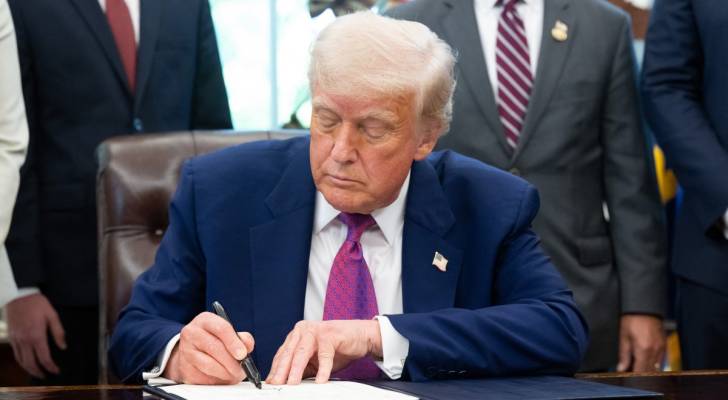Donald Trump (Credit: AFP)
Habeas corpus: What it is, why Trump may suspend it?
The Trump administration is reportedly exploring the possibility of suspending habeas corpus—a centuries-old legal safeguard that allows individuals to challenge their detention in court—as part of its escalating efforts to detain and deport undocumented immigrants.
White House deputy chief of staff Stephen Miller described the doctrine not as a guaranteed right but as a "privilege" that could be set aside under certain conditions. “The legal principle is a privilege,” Miller said, suggesting its suspension might streamline immigration enforcement.
This potential move comes at a time when detainees, including migrants and student protesters, have increasingly turned to habeas corpus to contest their detentions. The renewed interest in the writ reflects growing tensions between civil liberties and federal immigration enforcement.
The term habeas corpus, meaning “you should have the body” in Latin, is foundational to Anglo-American legal systems. It ensures that anyone held in custody can appear before a judge to challenge the legality of their detention. Sometimes referred to as the “Great Writ of Liberty,” its roots pre-date the Magna Carta and it remains embedded in democratic legal traditions.
The US Constitution refers to habeas corpus only once, in Article One, stating that its suspension is only permissible “when in cases of rebellion or invasion the public safety may require it.”
Historically, suspensions have been rare and controversial. President Abraham Lincoln famously invoked it during the Civil War, prompting a constitutional clash with then–Chief Justice Roger Taney, who argued that only Congress had such authority. Congress later retroactively authorized Lincoln’s actions. The writ was also suspended during the Reconstruction era to combat Ku Klux Klan violence, and in Hawaii during World War II after the bombing of Pearl Harbor, enabling mass arrests of Japanese Americans.
In modern jurisprudence, US courts have affirmed that habeas corpus applies to both citizens and non-citizens. A landmark 2008 Supreme Court decision extended the right even to non-citizens held in facilities like Guantanamo Bay. Nonetheless, successful habeas petitions remain uncommon. Most courts uphold detentions as lawful, making legal victories exceedingly rare.
One notable exception came in 2021 when Asadullah Haroon Gul, a detainee at Guantanamo, won a habeas corpus petition—becoming the first to do so since the 2008 ruling. He was eventually transferred to Afghanistan after spending years in custody.
The Trump-era surge in immigration arrests and the detention of student activists has thrust habeas corpus into the spotlight once again. In April, the Supreme Court ruled that individuals targeted for removal under the Alien Enemies Act must be given adequate notice to challenge their deportation. This led to temporary delays in some deportation cases in Texas.
Among those now invoking the writ is Columbia University graduate student Mahmoud Khalil, who has emerged as a prominent voice in pro-Palestinian protests on campus. Currently facing deportation proceedings, Khalil has filed a habeas corpus petition in a bid to remain in the country while his case is reviewed.
As legal and political battles escalate, the Trump administration's consideration of suspending habeas corpus has sparked alarm among civil rights advocates, who warn it could set a dangerous precedent in the balance between national security and constitutional freedoms.




